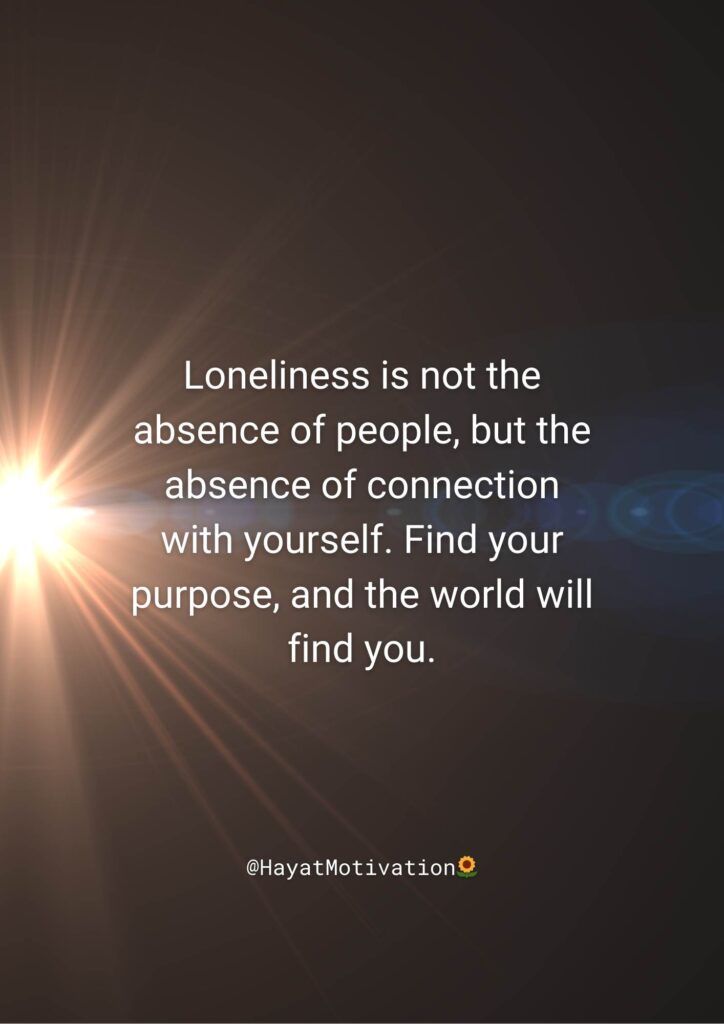
How To Overcome Loneliness: Understanding Its Roots, Impact, and Path to Healing
Loneliness is a universal experience that has touched nearly every human life at some point. Whether it’s the ache of missing meaningful connections or the quiet solitude that feels overwhelming, loneliness is a deeply personal yet globally significant phenomenon.
Studies reveal that loneliness affects millions of people across the world, yet its roots and solutions remain elusive for many.
In this article, we’ll explore the history of loneliness, global statistics, its causes, and practical ways to heal from it.
By diving into theories and understanding how loneliness impacts young people, middle-aged individuals, and the older people differently, we can offer compassionate strategies to face it head-on.
“Loneliness is not the absence of people, but the absence of connection with yourself. Find your purpose, and the world will find you.”

Global Loneliness Statistics
Loneliness is now recognized as a public health concern worldwide. Research indicates that:
Over 33% of adults globally experience frequent loneliness.
In the United States, one in three adults reported feeling lonely even before the pandemic.
A UK study found that 45% of young adults between 16-24 years old feel lonely frequently.
In Japan, there is a growing trend of “hikikomori,” where individuals withdraw entirely from society due to loneliness and social anxiety.
The prevalence of loneliness varies across cultures but is universally acknowledged as a problem that requires attention.
Theories and Reasons Behind Loneliness
Loneliness arises from a complex interplay of personal, social, and environmental factors.
1. Psychological Theories:
Attachment Theory: Difficulty forming secure attachments in childhood can lead to feelings of loneliness in adulthood.
Social Comparison Theory: Comparing oneself to others, especially on social media, exacerbates feelings of isolation.
2. Reasons for Loneliness:
Modern Lifestyles: Urbanization and remote work have reduced face-to-face interactions.
Digital Overload: Despite being connected online, many people feel emotionally disconnected.
Transitions in Life: Moving to a new city, losing a loved one, or retiring can trigger loneliness.
Loneliness Among All Age Groups
Loneliness affects people differently based on their stage in life.
1. Young People:
Social media amplifies feelings of inadequacy and exclusion.
Transitioning from school to adulthood can create uncertainty and loneliness.
2. Middle-Aged Adults:
Work-life imbalances and career pressures contribute to emotional isolation. Responsibilities like caregiving and financial stress limit time for socializing.
3. Older Adults:
Physical health issues and loss of loved ones often lead to loneliness. Lack of mobility and shrinking social circles increase isolation.
Practical Methods to Overcome Loneliness
1. Cultivate Connections:
Prioritize meaningful relationships by reaching out to family and friends.Join clubs, groups, or volunteer organizations to meet like-minded people.
2. Limit Social Media:
Reduce time spent on social platforms and focus on face-to-face interactions.Use social media to initiate real-world connections rather than comparisons.
3. Practice Self-Compassion:
Loneliness can lead to self-criticism. Replace negative thoughts with affirming ones.Take up hobbies or activities that bring joy and purpose.
4. Seek Professional Help:
If loneliness feels overwhelming, consider therapy or counseling.Therapists can help unpack deeper causes and provide coping strategies.
5. Mindfulness and Gratitude:
Practicing mindfulness can be a powerful tool in learning how to overcome loneliness. By focusing on the present moment and letting go of negative thoughts, you can begin to break free from feelings of isolation.
Both mindfulness and gratitude are effective strategies for those wondering how to overcome loneliness, offering a way to reconnect with yourself and the world around you.
“Every struggle you face is a lesson in disguise, and every moment of doubt is an opportunity to rise stronger than ever.”

The Importance of How to Overcome Loneliness in Today’s World
Loneliness is not just an emotional state but a condition that affects physical health.
Studies have shown that chronic loneliness increases the risk of heart disease, depression, and even mortality. Tackling loneliness requires not just individual effort but also societal change to create inclusive, supportive communities.
How to Overcome Life Challenges and Build Unstoppable Resilience
Conclusion
Learning how to overcome loneliness is an essential step toward leading a fulfilling and connected life. By understanding the causes of loneliness and embracing practical methods, anyone can take steps to rebuild their sense of belonging and happiness.
No matter your age or circumstances, discovering how to overcome loneliness starts with small, meaningful actions.
With compassion, persistence, and the right mindset, it is possible to find comfort and connection in even the loneliest moments.
